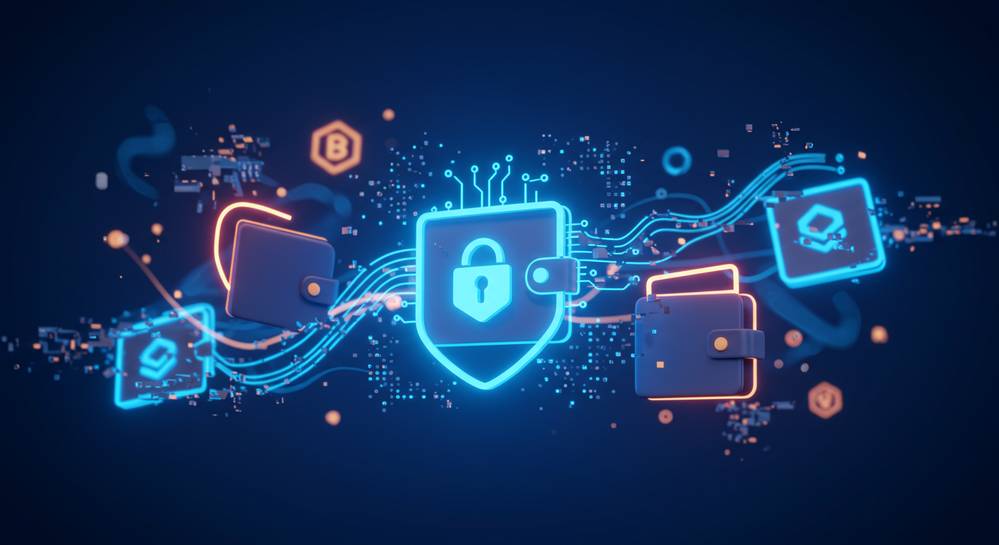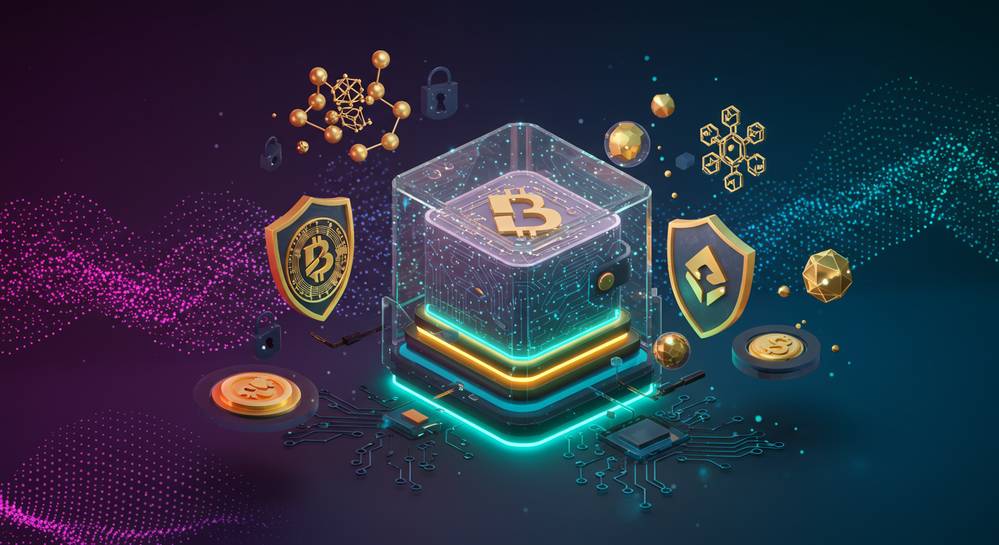Most secure crypto wallets aren’t just a fancy term; they’re your armor in the digital realm. Your coins deserve a fortress – a wallet that stands guard against every cyber-threat. Picture your crypto nest egg tucked away in the safest vault; that’s the peace of mind I want for you. I’ve waded through the tech jargon and emerged with the essentials. You’ll learn the armor’s best cuts from cold storage chill to the hot wallet hustle and the two-factor lock that keeps the thieves at bay. Ready to drill into the Fort Knox of crypto? Let’s dive in and make sure your digital wealth is as secure as it can be.
Understanding the Landscape of Cryptocurrency Wallet Security
Distinguishing Between Cold Wallets and Hot Wallets
When you jump into the world of crypto, you might hear “cold wallets” and “hot wallets.” Think of cold wallets like a safe. They hold your digital coins offline, so hackers can’t reach them. Hot wallets are connected to the internet. They’re handy but not as safe as cold wallets since they’re more open to attacks.
People often like cold wallets for saving big amounts, while hot wallets are for day-to-day use. Hardware wallet for bitcoin, like Ledger Nano X or Trezor Model T, are top cold storage wallets. They keep your coins safe, like a bank vault. On the other hand, mobile and top-rated wallet apps offer ease and speed for trading and spending but need more care.
The Role of Two-Factor Authentication in Crypto Security
Now, let me tell you about a hero of security called two-factor authentication, or 2FA for short. This is a guard for your wallet. It checks if it’s really you trying to get in. When you log in, you’ll use something you know, like a password, plus something you have, like your phone or a USB security key. With 2FA, even if a thief gets your password, they still can’t get into your wallet.
Smart, right? That’s why 2FA is among the top cryptocurrency safety tips. Whether it’s secure Ethereum wallets or the best multi-currency wallets, they must offer two-factor authentication. It’s like having a trusted friend who always checks IDs at the door.
Now, every time you choose a wallet, think like a security pro. Ask yourself, does this wallet keep my coins cold or hot? Does it have solid two-factor authentication? Answer these, and you’re on your way to securing your crypto assets like a boss. Remember, the safest cryptocurrency wallets never cut corners on security.
When you pick a wallet, think of your digital wealth. You want a wallet that’s not just a safe but also a guard, a bank, and your best ally rolled into one. Whether it’s encrypted digital wallets, biometric blockchain wallets, or the good old hardware wallet routes, the goal is crystal clear – to keep your digital gold under the best lock and key. And with a mix of cold storage for digital currency and strong 2FA, you’re setting up a fortress around your digital wealth.
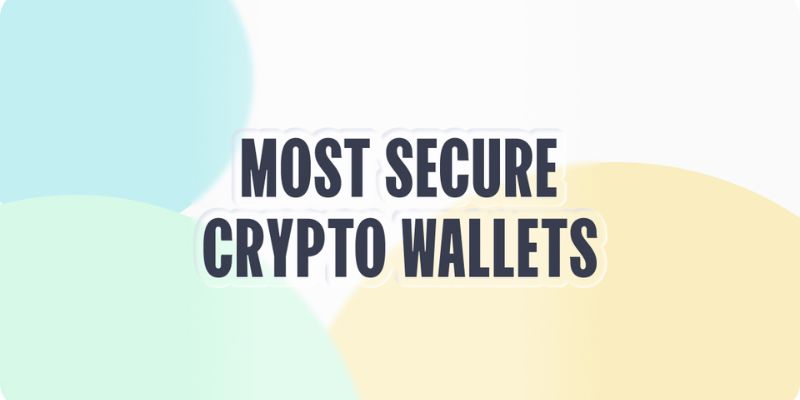
Hardware Wallets: The Fort Knox of Digital Currencies
Ledger Nano X: An In-Depth Look at Its Security Features
Ledger Nano X is a top choice for safe cryptocurrency storage. It’s like a vault that locks your digital money tight. This hardware wallet for Bitcoin and other coins uses secure chips to shield your funds from attacks. With it, your private keys, which are your crypto’s secret keys, stay offline away from hackers.
Inside this device, Ledger Nano X features protective layers like a PIN code and two-factor authentication (2FA). These steps confirm it’s really you trying to access your money. Two-factor authentication makes sure another check is in place, alongside your password.
The Ledger Live app works with the Ledger Nano X, letting you check your balance and send crypto safely. It makes sure only you can sign off on any crypto moving out. Since it’s a cold wallet, it’s not always connected to the internet. This lowers the chance of online attacks.
Your assets can recover if your device is lost. Because of this, it’s among the best multi-currency wallets. You get a recovery phrase when you set it up. Write it down and keep it safe. No one else should know it. This phrase brings back your wallet’s contents on a new device if needed.
This wallet supports more than 1,800 coins. For those holding diversified assets, it’s a winner. It can manage Bitcoin, secure Ethereum wallets, and many more.
Why the Trezor Model T Stands Out for Cryptocurrency Safety
The Trezor Model T is another star in the safest cryptocurrency wallets lineup. It’s like having a strong, less breakable safe for your digital cash. Trezor Model T security starts with its touch screen. It shows details clearly and makes it harder for hackers to see your PIN or recovery seed.
Your private keys never leave this wallet. This means they aren’t exposed to risky internet-connected devices. Trezor Model T works with many coins and is a great fit for those looking for secure transaction signing.
Phishing is a trick used to steal your info online. Trezor protects against this. Even if your computer is unsafe, your Trezor keeps you covered. Plus, it’s one of the smart contract capable wallets. This means you can engage in more complex crypto deals confidently.
For recovery, it’s similar to the Ledger. If you lose your Trezor, your recovery seed helps bring back your assets on a new one. Keep this seed a secret and safe.
Trezor also makes it easy to connect to other wallets and services. It’s a trusted wallet provider for many in the crypto space.
Both Ledger Nano X and Trezor Model T give you a fortress-like feel for your crypto. They are cold wallets and don’t expose your assets to daily online threats. In choosing between cold wallets vs. hot wallets, think about what matters most to you. Cold storage keeps your digital wealth offline, far from cyber crooks. Hot wallets, however, give you quick access but with more risk.
With either choice, think about adding crypto wallet insurance. It can protect your investment from disasters that hardware might not stop.
These wallets show that securing your crypto assets can be as robust as the most impenetrable forts. Stay safe and pick your digital armor wisely.
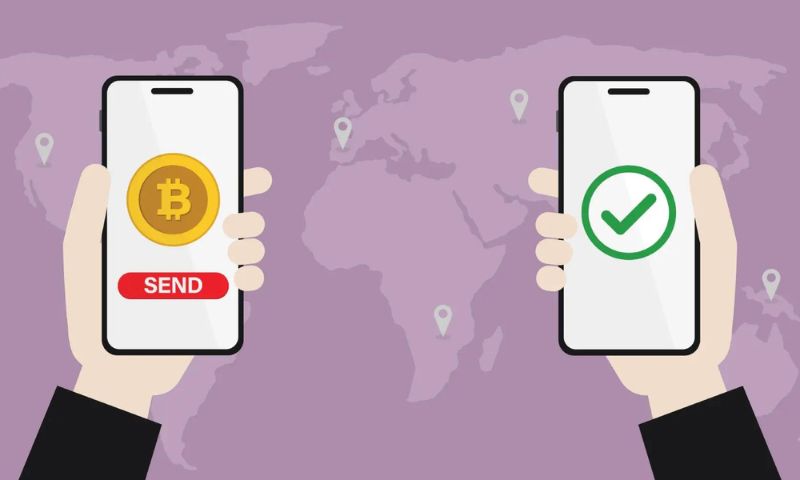
Advanced Security Measures for Crypto Enthusiasts
The Emergence of Biometric Blockchain Wallets
Biometric blockchain wallets are the new kids on the block. They use physical traits like fingerprints to lock down access. This tech adds a personal guard for your digital cash. It’s tough for thieves to copy your unique traits. This means, secure Ethereum wallets or the safest cryptocurrency wallets might have biometric options.
Biometric systems store your traits in an encrypted form. When it’s go-time, these wallets check the stored data with your live trait. If they match, you get in. It’s a big step up in security for any wallet.
The Importance of Multi-Layered Security: Air-Gapped Solutions and USB Keys
Think of multi-layered security like dressing for winter. You chuck on layers to keep warm. For crypto, layers keep your assets safe from the cold world of hackers.
Air-gapped solutions keep a wallet offline. This gap means a hacker can’t just hop onto your network and swipe your coins. They would have to get physical access. And that’s a whole other challenge.
USB keys add another layer. They’re like your house keys but for your digital safe. Without them, no one’s getting in. Secure transaction signing comes from these keys too. You confirm that it’s you doing the deal. So, peace of mind all around.
Two-factor authentication (2FA) is a must. It’s the double-check at the door. You need 2 proofs before getting to your coins. This could be a password plus a message to your phone. It’s like a one-two punch against bad guys trying to sneak in.
Phishing-resistant wallets also help. They fight off tricksters trying to reel you in. Combined with verified wallet developers, you stand strong. This shows you’re not messing around when it comes to locking down your crypto.
Remember, securing your crypto assets isn’t a one-off job. It’s a marathon, not a sprint. High-security wallet recommendations always change. Keep up to ensure the top cold storage wallets or best multi-currency wallets stay top-dog.
And let’s not forget the recovery side. Recoverability of wallet contents means having a backup plan. What if you lose your USB key or your biometric scanner fails? You need a safe and sound way to get back to your digital loot.
Backing up your wallets with paper wallet storage or wallet backup protocols is vital. It’s not the most high-tech, but it’s concrete. It gives you an out if tech takes a nosedive.
In the end, financial sovereignty and wallets go hand in hand. You control your wealth with these tools. By buffing up your crypto wallet with these layers, you’re set. The task is to keep your digital wealth as secure as your front door, maybe even more. And with these measures, you’re building a fortress, not just a fence.
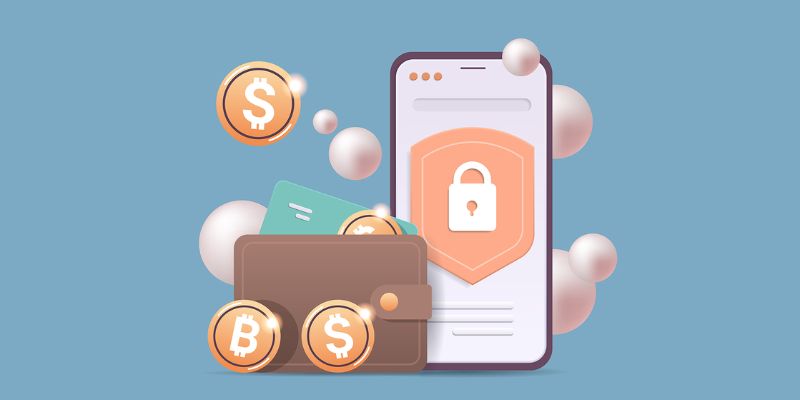
Ensuring Long-Term Protection for Your Crypto Assets
Best Practices for Backing Up Your Wallet: Passphrases and Recovery Protocols
Let’s talk about keeping your crypto safe for years to come. The key? Good backups. Think of backups like a safety net. If your wallet gets lost or breaks, you can still get to your coins. Use strong passphrases. Make them long and tricky. No easy words or your birthday!
Here’s what you do. Write down your wallet’s recovery phrase. It’s usually 12-24 random words. This phrase lets you restore your wallet. Keep it in a safe place. Better yet, keep a few copies in different spots. Some folks even use a metal wallet for their passphrase. It’ll survive a fire!
Remember, anyone with your phrase can access your wallet. So, treat it like gold. The safest cryptocurrency wallets make you confirm your phrase. They won’t let you move forward until you type it back in. This proves you wrote it down.
If you want to level up, look at multi-signature wallets. They’re like a bank vault with a few keys. You need a couple of keys to open it up. This means extra safety. One key won’t do it. You can share keys with folks you trust, like family.
Navigating the Intricacies of Decentralized Wallets and Interoperability
Now let’s talk about decentralized wallets. They let you hold many types of coins. You’re not stuck with just one kind, which is awesome. You get freedom and control over your digital wealth. Find the best multi-currency wallets to handle all your coins. More coins, one wallet.
What about swapping coins straight from your wallet? That’s where interoperability comes in. It means your wallet works with different blockchains. You can swap a Bitcoin for some Ethereum with ease. Remember, not all wallets do this. Check before you pick one.
And this part’s huge: choose a wallet that’s open-source. Open-source wallets let anyone check their safety. No hidden tricks. You can trust that experts have checked it for holes. Developers can update it too, keeping it safe against new threats.
What about software versus hardware wallets? Think of hardware wallets as your personal vault. Tough, offline, and waiting. The top cold storage wallets, like the Ledger Nano X or the Trezor Model T, are hardware wallets. They keep your crypto offline, away from hackers.
Need a wallet on the go? Mobile wallets are handier than hardware. But trade-offs come with convenience. They might not pack the same security punch as hardware wallets. Still, they can be safe if you use them right.
In closing, take your time. Picking a wallet is like choosing a guardian for your wealth. Read reviews, ask questions, and always go for quality and safety features. With the right wallet and backups, you can rest easy. Your digital gold is secure.
We’ve explored vital parts of cryptocurrency wallet security in this post. From knowing the difference between cold and hot wallets to embracing two-factor authentication, we’ve covered the basics. But we didn’t stop there. We dived into the world of hardware wallets, highlighting the Ledger Nano X and Trezor Model T for their robust security.
Moreover, for those craving an extra layer of safety, we discussed biometric blockchain wallets and air-gapped solutions. Remember, advanced measures like these can shield your digital coins even more.
We also reviewed the best ways to back up your wallet—with smart use of passphrases and recovery steps. Lastly, we untangled the complex web of decentralized wallets and their ability to work together.
Always remember: in the fast-paced realm of crypto, staying secure is not just smart—it’s vital. Safeguard your digital treasure like the pros, and sleep soundly knowing your assets are locked down tight. Trust in these strategies, and you’re set for a safer crypto journey.
Q&A :
What are the most secure cryptocurrency wallets available today?
When it comes to safeguarding your digital assets, choosing a secure cryptocurrency wallet is crucial. Hardware wallets like Ledger Nano X and Trezor Model T are often considered among the most secure options due to their offline storage capabilities. Additionally, software wallets such as BitLox and KeepKey offer robust security features. For those preferring mobile options, wallets like Samourai Wallet for Android devices prioritize security. When selecting a wallet, look for features such as two-factor authentication, multi-signature support, and a trustworthy reputation within the crypto community.
How do hardware wallets provide enhanced security for cryptocurrencies?
Hardware wallets, also known as cold wallets, provide enhanced security because they store the user’s private keys offline, isolated from internet access. This makes them immune to online hacking attempts and malware. Each transaction made with a hardware wallet must be manually confirmed on the device itself, which significantly reduces the risk of unauthorized access. Popular hardware wallets such as Ledger and Trezor also feature secure chip technology to protect private keys and support for multiple cryptocurrencies.
Are there any completely secure crypto wallets that are immune to all types of hacking?
No crypto wallet can claim to be completely immune to all types of hacking. However, hardware wallets provide the highest level of security by storing private keys offline. Users are encouraged to follow best security practices like keeping their firmware up to date, creating strong passwords, using two-factor authentication, and never sharing their seed phrases. It’s also essential to purchase hardware wallets directly from the manufacturer to avoid tampered devices.
What security features should I look for when choosing a crypto wallet?
When selecting a crypto wallet, prioritize security features such as two-factor authentication (2FA), which adds an extra layer of protection. A hardware wallet for storing keys offline is also recommended. Look for wallets offering multi-signature function, which requires multiple approvals for transactions, adding another security layer. The wallet should have a strong track record and be developed by a reputable team. Ensure the wallet has a straightforward backup and recovery process and consider the transparency and open-source nature of the wallet’s software.
Can software crypto wallets be as secure as hardware wallets?
Software crypto wallets, also known as hot wallets, can offer robust security features, but inherently carry more risk than hardware wallets due to their constant internet connectivity. However, for increased security, some software wallets provide encryption for private keys, support for 2FA, multi-signature transactions, and compatibility with hardware wallets for added security layers. Users should be diligent in maintaining security practices such as using strong, unique passwords and keeping their software up to date.

